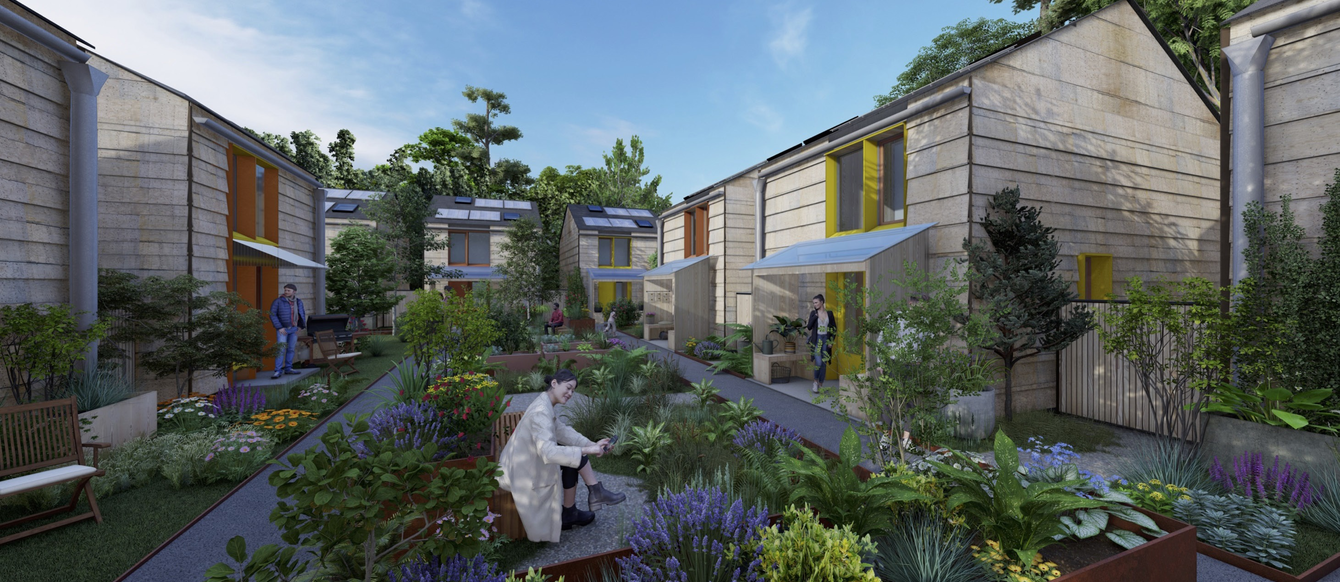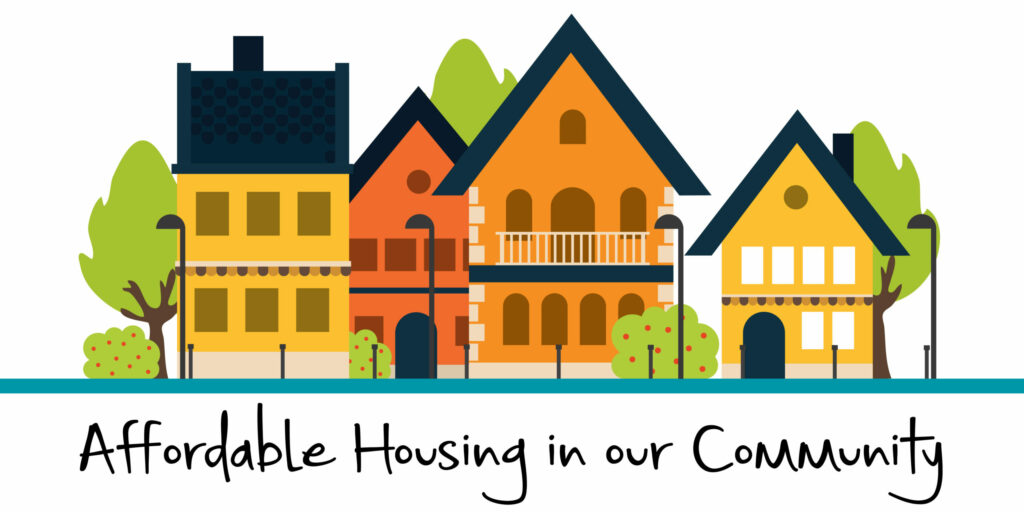The Key to Building Wealth with Affordable Homeownership
The Key to Building Wealth with Affordable Homeownership
Blog Article
Affordable Homeownership Options for First-Time Homebuyers
As the housing market remains to progress, novice property buyers face unique challenges in safeguarding cost effective homeownership alternatives. Different resources, consisting of entitlement program programs, low-down-payment home loans, and targeted grants, have arised to ease monetary pressures. These campaigns not just promote homeownership yet also foster community security and economic development. Browsing these choices can be complex, and understanding which paths are most advantageous calls for cautious consideration. What methods can potential home owners utilize to maximize their possibilities in this landscape?
Federal Government Support Programs
Federal government support programs play a critical function in making homeownership possible for many people and family members. These programs aim to ease the financial concern connected with purchasing a home, specifically for novice purchasers. By offering financial assistance, grants, and tax rewards, federal government campaigns help connect the void in between climbing housing costs and the buying power of possible property owners.
Numerous programs are available at the government, state, and neighborhood levels. As an example, the Federal Real Estate Administration (FHA) offers insurance policy on lendings, permitting loan providers to provide more favorable terms, such as lower down settlements and lowered rates of interest. Additionally, state and local governments usually have their own campaigns, which might consist of deposit support programs, homebuyer education and learning training courses, and desirable home loan terms.
These programs are created to attend to the distinct difficulties dealt with by low- to moderate-income family members, consisting of limited cost savings and credit rating. By cultivating a setting where homeownership is more easily accessible, entitlement program programs not just sustain individual desires but additionally add to community security and economic growth. Recognizing and using these resources can considerably enhance the leads of successful homeownership.
Low-Down-Payment Mortgages
For several hopeful home owners, low-down-payment home mortgages offer a feasible pathway to homeownership, especially in today's tough real estate market. These home loan choices generally need deposits varying from 3% to 5%, making it less complicated for first-time customers to go into the market without the worry of saving for a considerable down payment.
Different lending institutions provide low-down-payment programs, consisting of conventional loans backed by Fannie Mae and Freddie Mac, in addition to government-backed choices like FHA lendings. These home loans are created to suit individuals with restricted financial savings while still providing competitive rate of interest. Importantly, they enable customers to keep even more cash for various other necessary expenses, such as moving expenses, home evaluations, and prospective remodellings.
Nonetheless, potential home owners need to bear in mind the trade-offs related to low-down-payment mortgages. A smaller sized deposit may cause greater monthly repayments and the need of private mortgage insurance policy (PMI), which protects lending institutions in situation of default. Consequently, it is crucial for novice purchasers to carry out detailed study and talk to home mortgage specialists, guaranteeing they pick a low-down-payment alternative that straightens with their long-lasting financial goals. Affordable Homeownership.
First-Time Property Buyer Grants
Many first-time property buyers discover that grants can significantly alleviate the monetary burden of acquiring a home, informative post matching low-down-payment home mortgage options. These gives, commonly provided by state and neighborhood governments or charitable organizations, offer financial help that does not call for payment, making them an eye-catching option for those going into the real estate market.
Eligibility for new homebuyer grants commonly depends upon revenue, creditworthiness, and the acquisition price of the home. Lots of programs are designed to help reduced- to moderate-income families, ensuring that assistance reaches those that require it most. The application process usually includes documentation of economic status, buyer education courses, and often also a dedication to stay in the home for a particular duration.
The amount useful differs commonly, with some grants supplying several thousand dollars to assist cover closing expenses or down settlements. Researching offered grants in your area is necessary, as programs regularly transform and might have details needs. By leveraging these funds, first-time homebuyers can make homeownership much more easily accessible, inevitably attaining their desire for possessing a home while minimizing the first economic pressure.
Cutting-edge Community Campaigns
Innovative neighborhood initiatives are playing a critical role in increasing inexpensive homeownership options for residents. These campaigns usually entail collective efforts between neighborhood federal governments, charitable organizations, and private field stakeholders to develop sustainable housing solutions customized to neighborhood needs.
One notable strategy is the facility of neighborhood land trusts (CLTs), which allow homeowners to buy homes while the land stays owned by the depend on. This design assists preserve cost gradually and prevents speculative price increases. Furthermore, CLTs commonly give instructional sources and support services to empower newbie see it here property buyers.
Another reliable campaign is the advancement of mixed-income housing jobs, which blend economical units with market-rate homes. This approach promotes inclusive neighborhoods and reduces the preconception frequently related to low-income real estate. Regional federal governments are progressively sustaining zoning reforms to help with the construction of accessory house units (ADUs), which can supply added rental income for property owners while enhancing housing schedule.

Tips for Budgeting and Saving

Next, develop a specialized interest-bearing account especially for your future home purchase. Purpose to conserve a percentage of your revenue regularly, ideally 20% or more, to develop a significant down payment. Use automation devices, such as straight down payment or automated transfers, to make saving simpler and a lot more regular.
In addition, consider adopting the 50/30/20 guideline: designate 50% of your revenue to demands, 30% to wants, and 20% to savings and financial obligation payment - Affordable Homeownership. This approach advertises balanced economic wellness

Verdict
In summary, economical homeownership alternatives for first-time homebuyers encompass different sources such as federal government support programs, low-down-payment home mortgages, and grants. By leveraging these monetary devices, people can navigate the complexities of homeownership, eventually adding to a more equitable housing landscape.
As the real estate market continues to advance, novice property buyers encounter unique Read Full Report challenges in protecting inexpensive homeownership alternatives. By fostering an environment where homeownership is a lot more obtainable, federal government assistance programs not just sustain private goals however likewise contribute to community security and financial growth. By leveraging these financial resources, novice buyers can make homeownership a lot more easily accessible, eventually achieving their desire of having a home while reducing the initial economic stress.
In summary, economical homeownership alternatives for novice homebuyers encompass numerous resources such as government assistance programs, low-down-payment home loans, and gives. By leveraging these financial devices, people can navigate the intricacies of homeownership, inevitably adding to a more fair housing landscape.
Report this page